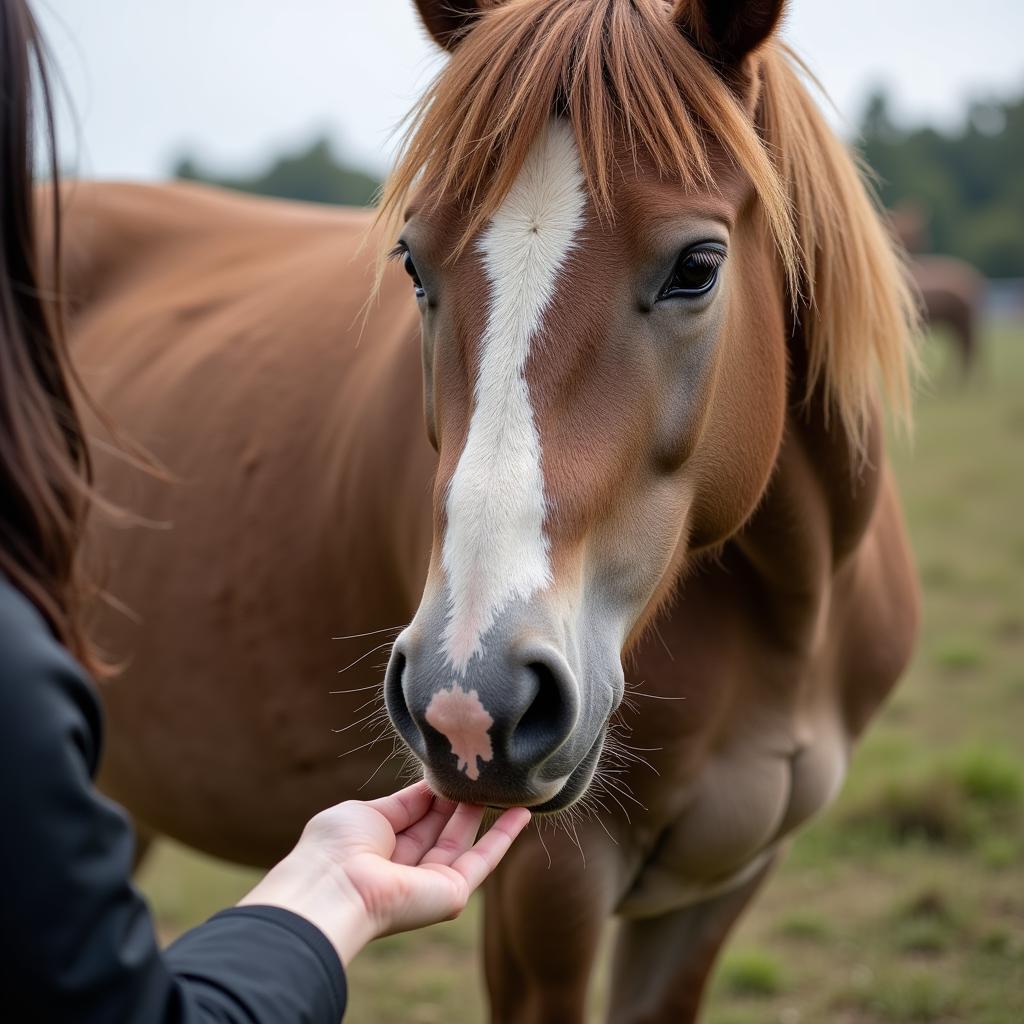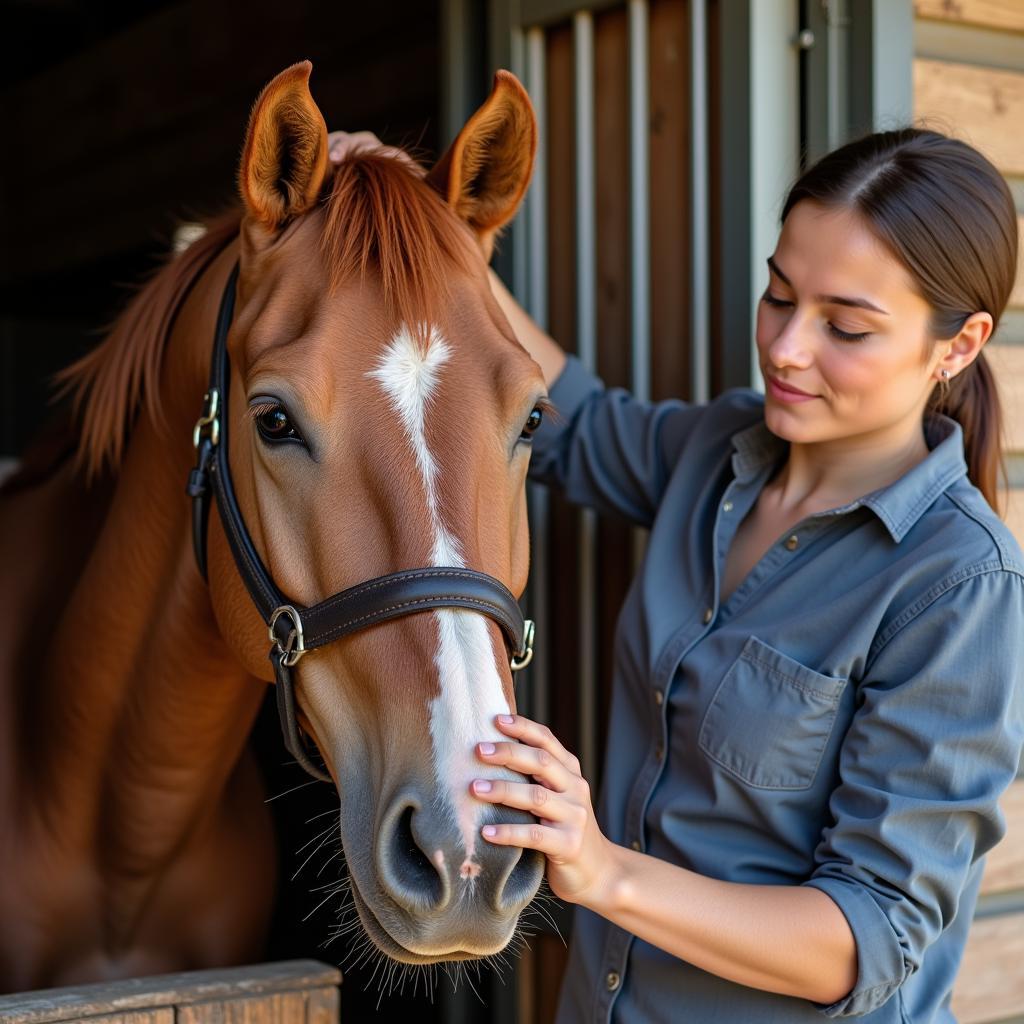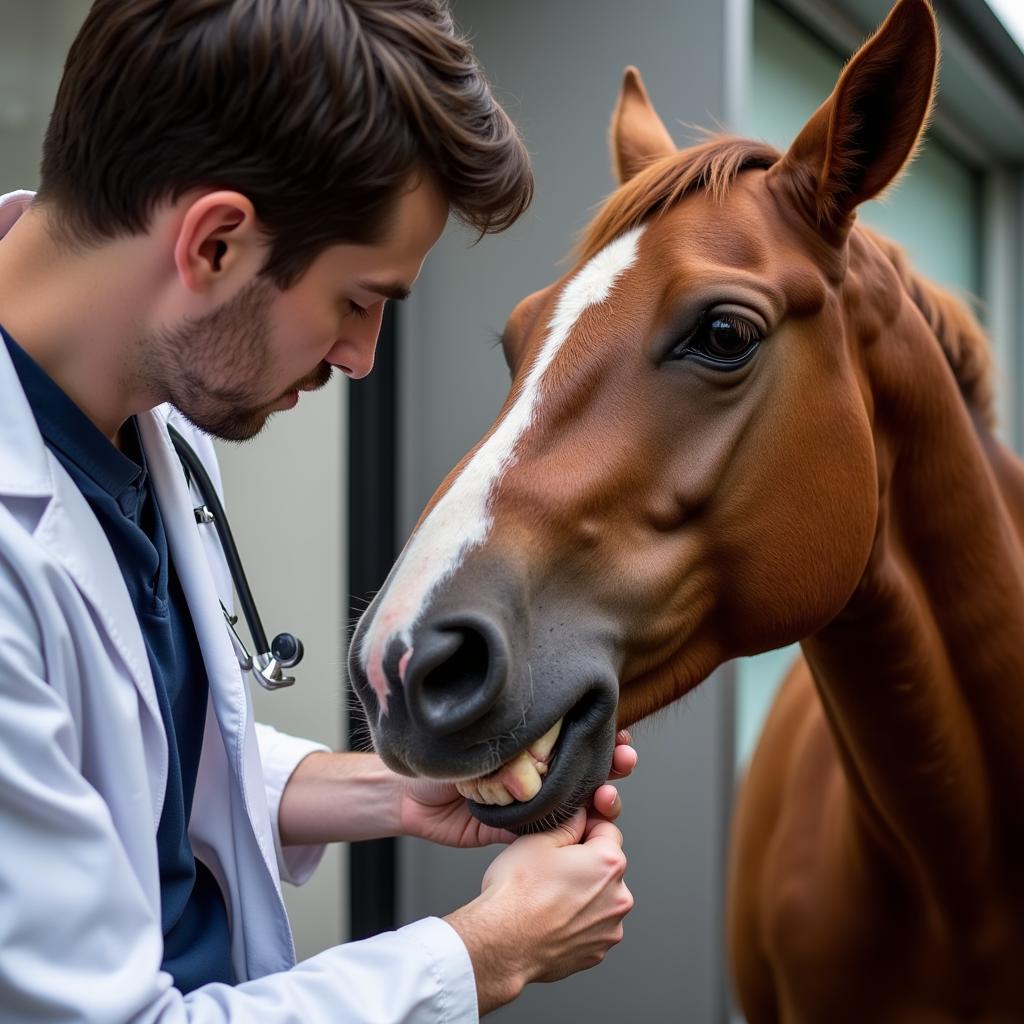The term “Nickel Horse” often evokes images of inexpensive, perhaps even undesirable, equines. But what exactly does “nickel horse” mean, and what should you know about these often-misunderstood animals? This guide delves into the world of the nickel horse, exploring the origins of the term, the realities of owning one, and ultimately, how to provide the best possible care for these horses, regardless of their monetary value.
Decoding the “Nickel Horse” Label
The term “nickel horse” historically refers to a horse purchased for a very low price, often five cents, or a nickel. This often implies the horse is older, has some health or behavioral issues, or isn’t suitable for high-performance disciplines. However, it’s crucial to remember that a low price tag doesn’t necessarily equate to a low-quality animal. Many “nickel horses” can become beloved companions and valuable partners with proper care and understanding.
After having a horse for over 10 years, I decided to get a nylon halter horse for her. It was the right choice.
The Realities of Owning a “Nickel Horse”
Owning a “nickel horse” presents both unique challenges and rewarding opportunities. While the initial purchase price might be low, potential owners should be prepared for possible veterinary expenses, training needs, and specialized care. However, the bond formed with a horse rescued or purchased for a modest sum can be incredibly strong. These horses often have a wealth of experience and can teach their owners valuable lessons about patience, resilience, and the true meaning of companionship.
 Rescued Nickel Horse Finding a New Home
Rescued Nickel Horse Finding a New Home
Caring for Your “Nickel Horse”: Key Considerations
Providing excellent care for a “nickel horse” often involves addressing specific needs based on the horse’s age, history, and any existing conditions. Here are some essential factors to consider:
- Veterinary Care: A thorough veterinary checkup is crucial upon acquiring a “nickel horse.” This allows you to identify any underlying health issues and establish a baseline for future care.
- Nutrition: Proper nutrition is vital for any horse, but especially for older or neglected animals. A balanced diet tailored to the horse’s individual needs can significantly improve its health and well-being.
- Dental Care: Dental problems are common in older horses and can affect their ability to eat and thrive. Regular dental checkups and necessary treatments are essential.
- Hoof Care: Maintaining healthy hooves is paramount for a horse’s comfort and soundness. Regular farrier visits are a must.
- Exercise and Training: Appropriate exercise and training, adapted to the horse’s physical limitations, can help maintain muscle tone, improve mental stimulation, and strengthen the bond between horse and owner.
 Providing Senior Horse Care
Providing Senior Horse Care
Looking for cute horse halters? We have a wide selection!
What to Look For When Considering a “Nickel Horse”
While the term “nickel horse” often implies imperfections, some key factors can indicate a horse’s potential for a happy and healthy life:
- Temperament: A calm and willing temperament is often more valuable than athletic prowess, especially for a companion animal.
- Soundness: While some physical limitations are expected, ensure the horse is sound enough for its intended purpose.
- Overall Health: Look for signs of good general health, such as bright eyes, a healthy coat, and a good appetite.
- Connection: The most important factor is often the connection you feel with the horse.
 Evaluating a Potential Nickel Horse Purchase
Evaluating a Potential Nickel Horse Purchase
Giving a “Nickel Horse” a Second Chance
Adopting or purchasing a “nickel horse” offers a unique opportunity to make a real difference in an animal’s life. These often-overlooked horses can become cherished companions, offering valuable life lessons and immeasurable love.
Looking for horse saddle hardware? Check out our collection.
Conclusion
The “nickel horse” represents more than just a low price tag; it symbolizes the potential for second chances and the enduring power of the human-animal bond. By understanding the specific needs of these horses and providing compassionate care, we can ensure they live fulfilling lives, regardless of their monetary value. A stud chain horse can also be a great companion. Remember, every horse deserves a loving home.
FAQ
- What is a “nickel horse”? A horse bought for a very low price, often due to age, health, or behavioral issues.
- Are “nickel horses” always problematic? No, many can be excellent companions with proper care.
- What are the key considerations when caring for a “nickel horse”? Veterinary care, nutrition, dental care, hoof care, and appropriate exercise.
- What should I look for when considering a “nickel horse”? Temperament, soundness, overall health, and a personal connection.
- Why should I consider a “nickel horse”? They offer a chance to make a difference and form a strong bond.
- Where can I find a purple horse halter? Check out Justus Horses USA!
- What should I use to tie my horse securely? Consider a stud chain horse.
Common Scenarios & Questions:
- Scenario: My nickel horse is losing weight despite eating well. Question: Could there be underlying health issues like dental problems or parasites affecting its digestion?
- Scenario: My nickel horse seems stiff and reluctant to move. Question: Could it be arthritis or other age-related issues requiring veterinary attention?
Further Exploration:
- Learn more about horse halters: nylon halter horse
- Explore various horse care products: cute horse halters
For any assistance, contact us at Phone: 0772127271, Email: [email protected] or visit us at QGM2+WX2, Vị Trung, Vị Thuỷ, Hậu Giang, Việt Nam. We have a 24/7 customer support team.